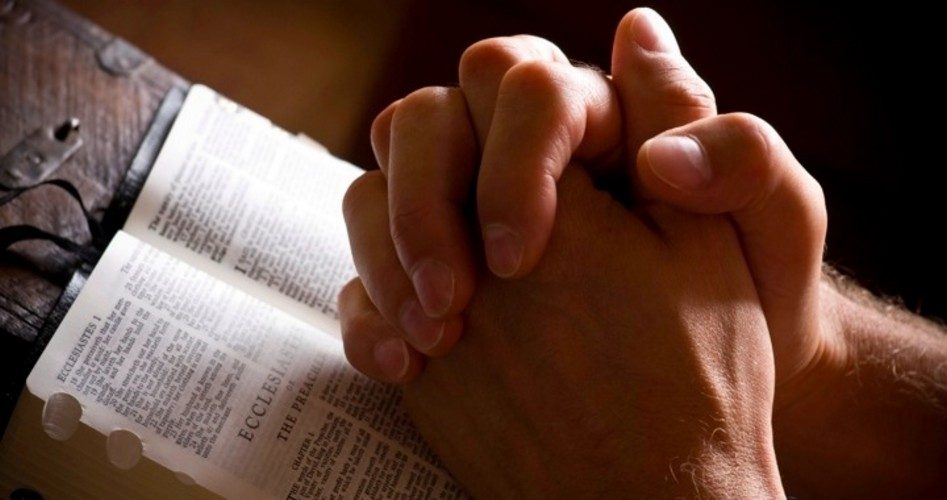
The Charlotte, North Carolina, police department has made it clear that Jesus is not welcome at its functions. According to the Associated Press, the Charlotte-Mecklenburg Police Department (CMPD) has informed its volunteer chaplains that they are not to mention Jesus’ name when they pray at official ceremonies. The Charlotte Observer reported that the new policy was announced by the head of the department’s volunteer chaplain program, Major John Diggs, who explained that the goal was to make sure the chaplains were sensitive to the variety of religions practiced by the department’s more than 2,000 employees. “This is not in any way an effort to demean anybody’s Christian beliefs,” Diggs assured. “It’s to show respect for all the religious practices in our organization. CMPD is not anybody’s church.”
Apparently, some chaplains, most of whom represent the Christian faith, think the new policy is too restrictive. Terry Sartain, a volunteer CMPD police chaplain for the past seven years, said he got the news shortly before he was to give the invocation at a promotions ceremony last month. When he was told not to use Jesus’ name in his prayer, he asked to be excused from the event.
Sartain, who pastors Charlotte’s Horizon Christian Fellowship, told the Observer that “Jesus is all I’ve got for a blessing. Now I’ve got to find a balance. I want to serve the officers and their families. I don’t want to jam my beliefs down anybody’s throat. But I won’t deny Jesus.”
Diggs insisted that chaplains such as Sartain, who have strong convictions about their faith, won’t be required to compromise their beliefs on behalf of the department. He said there are enough volunteer ministers to cover the now-secularized events at which police chaplains are called to officiate.
But according to the Blaze, Sartain was told that his decision not to attend and pray at the event would harm his standing as a police chaplain. In the end, while he did not change his mind about praying at the government function, Sartain said that he decided to continue as a CMPD chaplain because the spiritual service he provides to law enforcement officers is important.
The Charlotte Observer noted that earlier this year the U.S. Supreme Court backed a lower court ruling that banned North Carolina’s Forsyth County from opening its meetings with sectarian prayer. The move to ban mostly Christian prayers in favor of a “non-sectarian” invocation has been increasing across the nation and even in the U.S. military, the paper observed.
Diggs said that the CMPD currently has six chaplains who serve police employees who may be Christian, Jewish, Muslim, or, perhaps, have no faith at all. Chaplains are now expected to pray in such a way that will offend no one.
Some Charlotte clergy fully support the move, emphasizing that the police chaplains must be prepared to serve those who do not embrace Christianity. The Rev. Dennis Foust, pastor of St. John’s Baptist Church in Charlotte, said that the police department is simply directing its Christian chaplains “to observe the same practices we would desire and respect from Jewish, Muslim, Buddhist, or Hindu chaplains. When we gather as citizens, we do not gather in the name of Jesus. Our prayers are offered to God with respect for the first clause of the First Amendment to the U.S. Constitution.”
Foust was mouthing the mantra, popularized by the ACLU, that there is a supposed wall of separation that bars religious (usually Christian) sentiments from blending with public, government-controlled forums. Jim Gronquist, a former Methodist minister who now works as an ACLU attorney to stamp out religious expression, told local Charlotte television station WSOC that “it’s past time when they should’ve made a policy” banning real prayer at CMPD police events.
But another local minister, the Rev. Russ Dean of the city’s Park Road Baptist Church, appeared to side with Sartain, wondering, “How else do you expect Baptists to pray” but in Jesus’ name? Dean told the Charlotte Observer that chaplains of all faiths — whether they are rabbis, imams, or Christian ministers — ought to be allowed to pray according to the dictates of their own faiths. But under the CMPD’s politically correct policy “we are really asking people of diverse faiths to become a part of some homogenized pseudo-faith, a public religion that is offensive to all because it attempts to offend none,” he said.
Sartain told Fox News that the CMPD policy “brings about a very real concern about where we are heading as a nation. I serve a God who loves people unconditionally, who died for their sins on the cross, who wants to reconcile himself to them and love them where they are … and now I’m told I can’t bless people as a result of that.”
The Christian chaplain emphasized that while he would honor the new policy by opting out of praying at public events, when relating one-on-one with police officers, he would continue to give them the full Christian treatment he is called by God to provide. “They know when I ride with them that I love them for who they are,” Sartain said of the officers.



